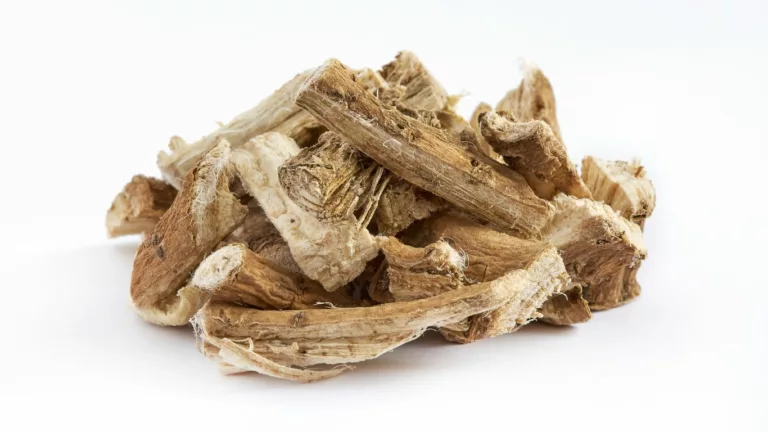Can Garlic Trigger Acid Reflux? – Everything You Need to Know
Is garlic a culprit for acid reflux? Many people love the bold flavor it adds to food, but for some, it can trigger uncomfortable symptoms of acid reflux. In this article, we’ll dive into whether garlic can cause acid reflux, how it affects your digestive system, and tips on managing it if you’re prone to this issue.
When it comes to managing acid reflux or GERD (gastroesophageal reflux disease), understanding the foods that can trigger symptoms is key. Garlic is a common flavor enhancer in many cuisines, but for people with acid reflux, it can be more than just a tasty ingredient—it can lead to discomfort. If you’ve ever wondered if garlic might be causing your heartburn or indigestion, you’re not alone. In this guide, we’ll take a look at how garlic affects acid reflux, and provide you with practical advice on managing it in your diet.

Understanding Acid Reflux and GERD
Acid reflux occurs when stomach acid or bile irritates the food pipe (esophagus). This is usually experienced as heartburn—a burning sensation in the chest. While occasional acid reflux is common, frequent acid reflux is a sign of GERD, which requires more attention. The symptoms of acid reflux can range from mild to severe and may include chest pain, regurgitation, difficulty swallowing, and a chronic cough. Identifying triggers is essential to managing the condition effectively.
How Garlic Affects Acid Reflux
Garlic is known for its health benefits, including its ability to support the immune system and provide antibacterial properties. However, for people with acid reflux, garlic can be a bit of a problem. The main issue is that garlic can relax the lower esophageal sphincter (LES), which is the muscle that separates the stomach from the esophagus. When this muscle relaxes, it allows stomach acid to flow back up into the esophagus, leading to acid reflux symptoms.

Does Cooking Garlic Make a Difference?
One question many people ask is whether cooked garlic is as harmful for acid reflux as raw garlic. The answer varies from person to person, but generally, cooking garlic can reduce some of its potent effects on the digestive system. However, it may not eliminate the risk entirely, especially if consumed in large amounts. Roasting, sautéing, or boiling garlic can make it milder, but for some, even cooked garlic might still cause discomfort.
Garlic and Other Foods: The Whole Picture
Garlic doesn’t exist in a vacuum when it comes to acid reflux. It’s often consumed with other foods, some of which might also trigger acid reflux. Spicy foods, acidic beverages (like citrus or tomatoes), and fatty meals can work together with garlic to worsen symptoms. This combination can increase the likelihood of reflux and make it harder to pinpoint which specific food is causing the issue.

How to Manage Garlic-Induced Acid Reflux
If garlic is a known trigger for your acid reflux symptoms, there are a few strategies you can try to minimize its effects:
Limit Garlic Intake
The simplest way to manage garlic-related acid reflux is to reduce your intake. This doesn’t mean you have to completely cut out garlic, but limiting how much you consume or being mindful of the frequency can help prevent discomfort. Try using smaller amounts in recipes, or use garlic powder as a substitute, which may have less of an impact on your LES.
Use Garlic Alternatives
If you love the flavor garlic provides but want to avoid the reflux, try experimenting with garlic alternatives. Some good options include garlic-infused oils (which contain less of the compounds that trigger reflux), shallots, or onions. These can give you a similar taste without the risk of reflux symptoms.
Focus on Your Overall Diet
A well-balanced diet is crucial in managing acid reflux. Along with limiting garlic, consider reducing other known reflux triggers, such as spicy foods, chocolate, and caffeinated beverages. Eating smaller, more frequent meals can also help reduce the pressure on your stomach, which might prevent acid from backing up into your esophagus.
Conclusion
So, can garlic trigger acid reflux? The answer is yes, especially if consumed in large amounts or if your body is sensitive to it. While garlic offers many health benefits, it’s important to understand its potential to trigger reflux and take steps to manage your intake. If garlic is a frequent trigger for you, try experimenting with smaller amounts, cooking it, or using alternatives. With a little trial and error, you can enjoy the flavors you love while keeping acid reflux at bay.
Appendices
References
- American College of Gastroenterology. (2023). Understanding Acid Reflux and GERD. Read Article
- Smith, J. & Thompson, L. (2022). Dietary Approaches to Managing GERD. Journal of Gastrointestinal Health, 45(1), 78-85. Read Article
- National Institute of Diabetes and Digestive and Kidney Diseases. (2024). GERD: Symptoms and Treatment Options. Read Article
FAQs
- Can I eat garlic if I have acid reflux? It depends on your personal tolerance. Garlic can trigger reflux in some people, especially in large amounts. It’s best to experiment with smaller quantities or use garlic-infused oils.
- Is cooked garlic better for acid reflux? Cooking garlic can reduce its potency in triggering acid reflux, but it may not eliminate the risk entirely. Start with small amounts to see how your body reacts.
- Are there any garlic alternatives for acid reflux sufferers? Yes, options like garlic-infused oils or using shallots and onions can provide similar flavor without causing reflux symptoms.
Disclaimer: The information in this article is provided for general educational purposes and should not be considered medical advice. If you have concerns about acid reflux or GERD, consult with a healthcare provider to discuss personalized treatment options.

Camellia Wulansari is a dedicated Medical Assistant at a local clinic and a passionate health writer at Healthusias.com. With years of hands-on experience in patient care and a deep interest in preventive medicine, she bridges the gap between clinical knowledge and accessible health information. Camellia specializes in writing about digestive health, chronic conditions like GERD and hypertension, respiratory issues, and autoimmune diseases, aiming to empower readers with practical, easy-to-understand insights. When she’s not assisting patients or writing, you’ll find her enjoying quiet mornings with coffee and a medical journal in hand—or jamming to her favorite metal band, Lamb of God.







